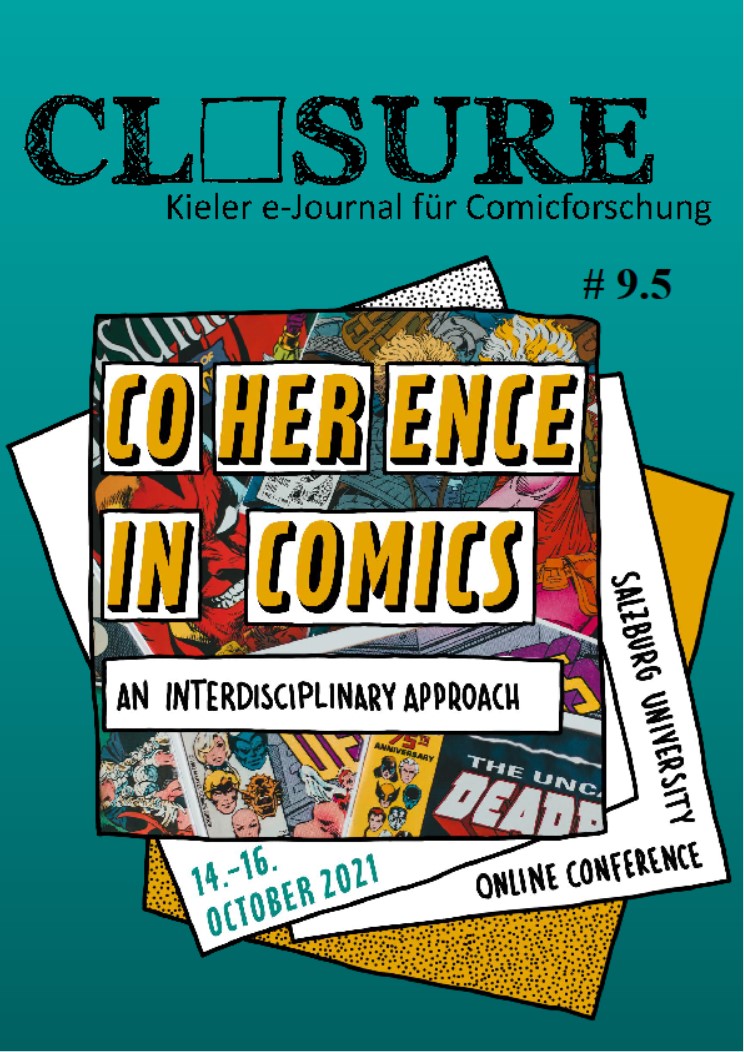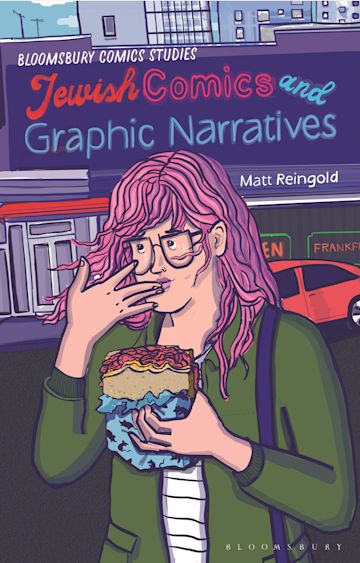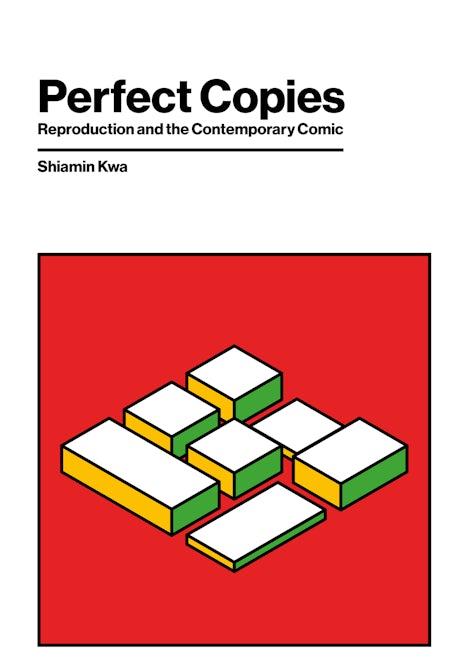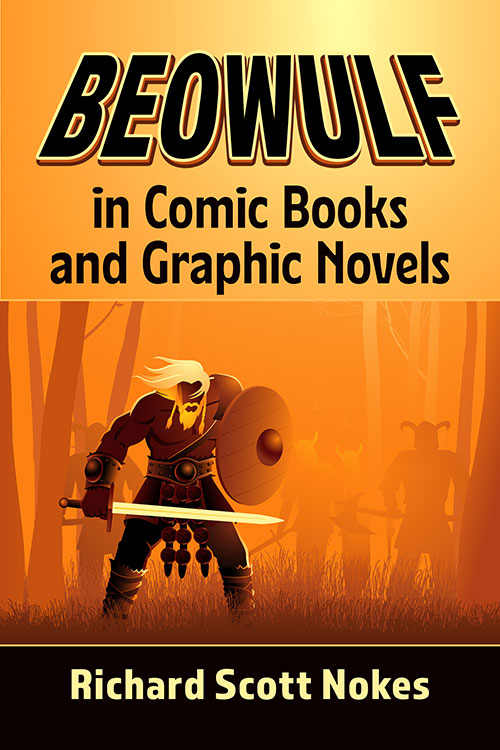Monitor is an irregularly published overview of publications from the previous six months that may be of relevance to comics studies scholars. The introductory texts are the respective publishers’. Do you have suggestions or information on new releases that have been overlooked and should be introduced on our website? Please let us know via email: redaktion@comicgesellschaft.de.
→ See previous Monitor posts.
Matt Reingold
Bloomsbury Academic
December 2022
Publisher’s website
“The most up-to-date critical guide mapping the history, impact, key critical issues, and seminal texts of the genre, Jewish Comics and Graphic Narratives interrogates what makes a work a “Jewish graphic narrative”, and explores the form’s diverse facets to orient readers to the richness and complexity of Jewish graphic storytelling.
Accessible but comprehensive and in an easy-to-navigate format, the book covers such topics as:
- The history of the genre in the US and Israel – and its relationship to superheroes, Underground Comix, and Jewish literature
- Social and cultural discussions surrounding the legitimization of graphic representation as sites of trauma, understandings of gender, mixed-media in Jewish graphic novels, and the study of these works in the classroom
- Critical explorations of graphic narratives about the Holocaust, Israel, the diasporic experience, Judaism, and autobiography and memoir
- The works of Will Eisner, Ilana Zeffren, James Sturm, Joann Sfar, JT Waldman, Michel Kichka, Sarah Glidden, Rutu Modan, and Art Spiegelman and such narratives as X Men, Anne Frank’s Diary, and Maus
Jewish Comics and Graphic Novels includes an appendix of relevant works sorted by genre, a glossary of crucial critical terms, and close readings of key texts to help students and readers develop their understanding of the genre and pursue independent study.”
Shiamin Kwa
Rutger’s University Press
January 2023
Publisher’s website
“Analyzing the way that recent works of graphic narrative use the comics form to engage with the “problem” of reproduction, Shiamin Kwa’s Perfect Copies reminds us that the mode of production and the manner in which we perceive comics are often quite similar to the stories they tell. Perfect Copies considers the dual notions of reproduction, mechanical as well as biological, and explores how comics are works of reproduction that embed questions about the nature of reproduction itself. Through close readings of the comics My Favorite Thing Is Monsters by Emil Ferris, The Black Project by Gareth Brookes, The Generous Bosom series by Conor Stechschulte, Sabrina by Nick Drnaso, and Panther by Brecht Evens, Perfect Copies shows how these comics makers push the limits of different ideas of “reproduction” in strikingly different ways. Kwa suggests that reading and thinking about books like these, that push us to engage with these complicated questions, teaches us how to become better readers.”
John A. Lent
Rutger’s University Press
January 2023
Publisher’s website
“In Asian Political Cartoons, scholar John A. Lent explores the history and contemporary status of political cartooning in Asia, including East Asia (China, Hong Kong, Japan, North and South Korea, Mongolia, and Taiwan), Southeast Asia (Brunei, Cambodia, Indonesia, Malaysia, Myanmar, Philippines, Singapore, Thailand, and Vietnam), and South Asia (Bangladesh, India, Iran, Nepal, Pakistan, and Sri Lanka).
Incorporating hundreds of interviews, as well as textual analysis of cartoons; observation of workplaces, companies, and cartoonists at work; and historical research, Lent offers not only the first such survey in English, but the most complete and detailed in any language. Richly illustrated, this volume brings much-needed attention to the political cartoons of a region that has accelerated faster and more expansively economically, culturally, and in other ways than perhaps any other part of the world.
Emphasizing the “freedom to cartoon,” the author examines political cartoons that attempt to expose, bring attention to, blame or condemn, satirically mock, and caricaturize problems and their perpetrators. Lent presents readers a pioneering survey of such political cartooning in twenty-two countries and territories, studying aspects of professionalism, cartoonists’ work environments, philosophies and influences, the state of newspaper and magazine industries, the state’s roles in political cartooning, modern technology, and other issues facing political cartoonists.
Asian Political Cartoons encompasses topics such as political and social satire in Asia during ancient times, humor/cartoon magazines established by Western colonists, and propaganda cartoons employed in independence campaigns. The volume also explores stumbling blocks contemporary cartoonists must hurdle, including new or beefed-up restrictions and regulations, a dwindling number of publishing venues, protected vested interests of conglomerate-owned media, and political correctness gone awry. In these pages, cartoonists recount intriguing ways they cope with restrictions—through layered hidden messages, by using other platforms, and finding unique means to use cartooning to make a living.”
Richard Scott Nokes
McFarland
February 2023
Publisher’s website
“The legendary story of Beowulf comes to us in only one medieval manuscript with no illustrations. Modern comic book and graphic novel artists have created visual interpretations of Beowulf for decades, both illustrating and altering the classic story to pull out new themes.
This book examines the growing canon of Beowulf comic books and graphic novels since the 1940s, and shows the remarkable emergence of new traditions—from re-envisioning the medieval look, to creating new plotlines, and even to transforming his identity. While placing Beowulf in a fantastical medieval setting, a techno-dystopia of the future, or modern-day America, artists have appropriated the tale to comment on social issues such as war, environmental issues, masculinity, and consumerism. Whether Beowulf is fighting new monsters or allying with popular comic book superheroes, these artists are creating a new canon of illustration that redefines Beowulf’s place in our culture.”
 ComFor-members Gesine Wegner (TU Dresden) and Dorothee Marx (Universität Kiel) have edited and recently published the first of two special issues of the Journal of Literary & Cultural Disability Studies (17.3, 2023) on the topic “Cripping Graphic Medicine”. Its subtitle is “Negotiating Empathy and the Lived Experience of Disability in and through Comics”. The forthcoming second issue, “Cripping Graphic Medicine II: Access and Activism at the Crossroads of Intersectionality”, is scheduled for 2024.
ComFor-members Gesine Wegner (TU Dresden) and Dorothee Marx (Universität Kiel) have edited and recently published the first of two special issues of the Journal of Literary & Cultural Disability Studies (17.3, 2023) on the topic “Cripping Graphic Medicine”. Its subtitle is “Negotiating Empathy and the Lived Experience of Disability in and through Comics”. The forthcoming second issue, “Cripping Graphic Medicine II: Access and Activism at the Crossroads of Intersectionality”, is scheduled for 2024. A special-themed issue #9.5 of
A special-themed issue #9.5 of  On September 18/19, 2023, the conference “Comics, the Children and Childishness”, will take place in presence at
On September 18/19, 2023, the conference “Comics, the Children and Childishness”, will take place in presence at  Jewish Comics and Graphic Narratives: A Critical Guide
Jewish Comics and Graphic Narratives: A Critical Guide Perfect Copies: Reproduction and the Contemporary Comic
Perfect Copies: Reproduction and the Contemporary Comic Asian Political Cartoons
Asian Political Cartoons Beowulf in Comic Books and Graphic Novels
Beowulf in Comic Books and Graphic Novels


